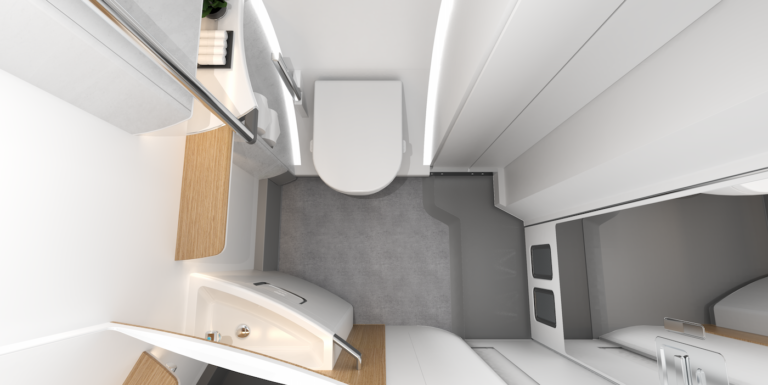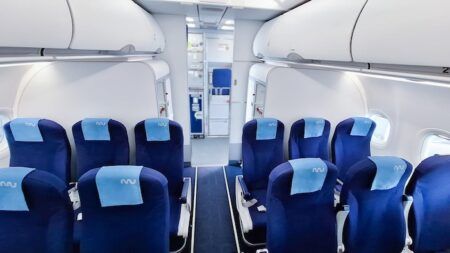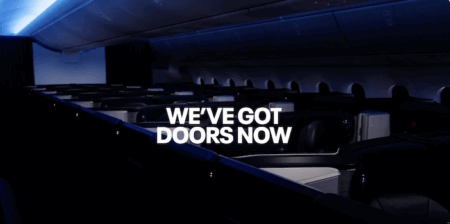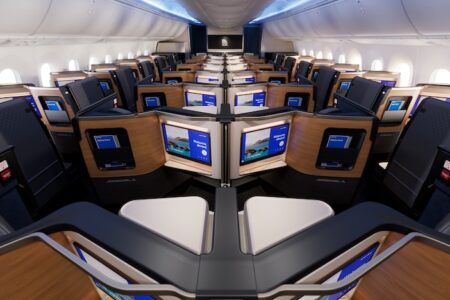ST Engineering has revealed an aircraft lavatory at Singapore Airshow, designed to improve the air travel experience for passengers with reduced mobility (PRMs). Named Access, the lavatory unit features a moving wall, which when deployed, can offer PRMs a claimed 40% more usable space.
The additional space creates a lavatory large enough to accommodate a passenger in a wheelchair and a carer, if needed, and also means passengers no longer have to be transferred behind a curtain, increasing their feeling of privacy and indeed dignity.
The Access unit, created in partnership with Acumen Design Associates, is a direct replacement for the standard narrow-body E-lavatory at the aft door and can be retrofitted or line-fitted on A321 and B737 aircraft.
The controlled expansion of the space is carried out by a crew member using a latch on the outside wall of the lavatory. There is also a secondary door, which can be opened at an angle to create an expanded entranceway (24in wide) for an aisle chair. Passengers can then use the space unassisted or with the help of a carer or family member. When unexpanded, the lavatory has the same footprint as a standard module, meaning there is no reduction in galley space or existing seating capacity, and airlines do not have to alter their cabin layout to fit an Access lav. However, through the clever use of space, the interior of Access feels much larger than a standard E-lavatory.
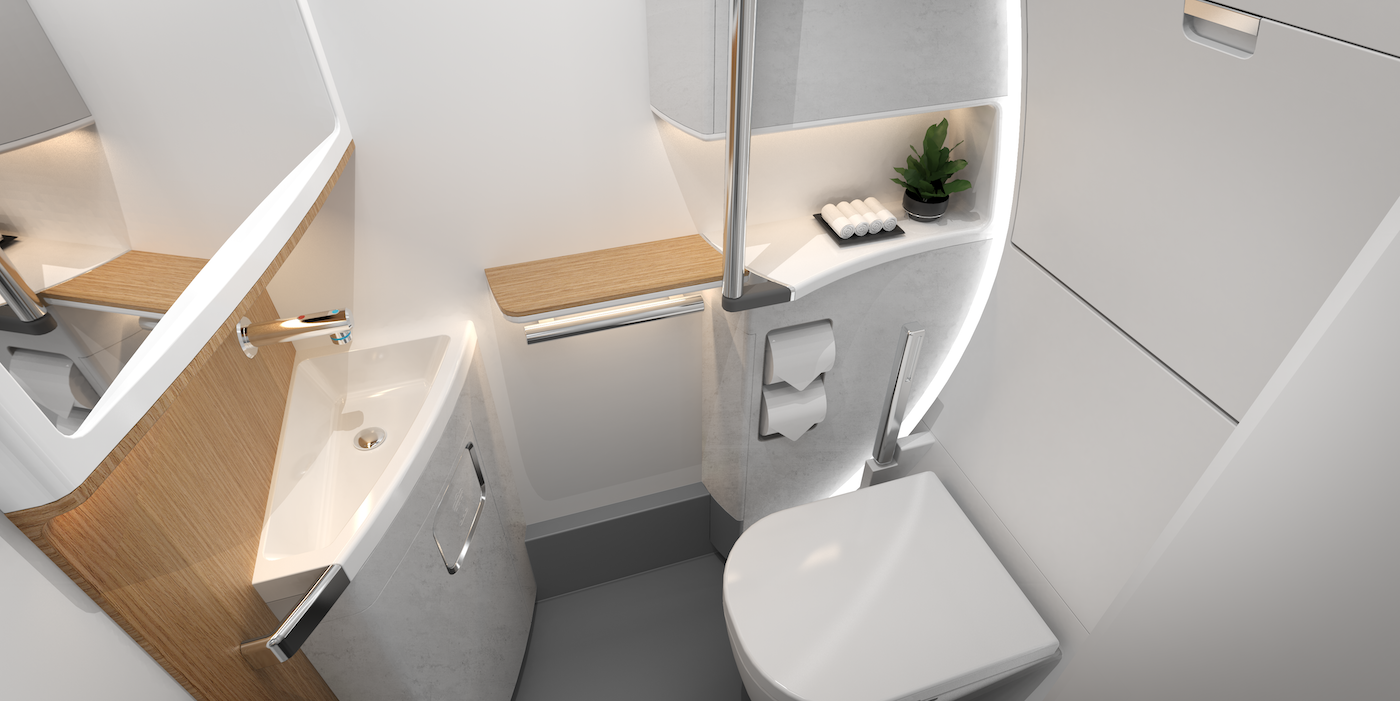
As well as offering greater space to manoeuvre, the lavatory also has several functional design features to improve the usability of the space for PRMs, including vertical, horizontal and fold-down grab bars to make both assisted and unassisted transfer as easy and quick as possible, and a lowered sink height to enable use from a seated position. All passengers benefit from the feature lighting (which includes curved floor-to-ceiling strip lights); large vanity and full-length mirrors, as well as a side-shelf for personal items; anti-slip flooring; and hygiene technologies such as anti-microbial surface finishes and touchless faucet and flush mechanisms.
Detailed research was undertaken during the conceptualisation and design process for Access, with PRMs attending a series of product testing sessions to provide feedback and help shape the final interior design.
Mary Doyle, founder of Rocket Girl Coaching, and one of Britain’s most influential disabled people, is a consultant in the field of accessible aviation. As part of the research process she stated, “As an independent manual wheelchair user for many years, I’ve experienced the good and bad of aircraft lavatories. I have regularly flown both long and short-haul for over 25 years and believe there are four main things which can improve the on-board experience: more space, highly sanitised work surfaces, greatly improved physical supports for unassisted transfer, and anti-slip flooring. And whilst lavatories serve a functional need, I believe they should look beautiful too, in keeping with excellent customer experience.”
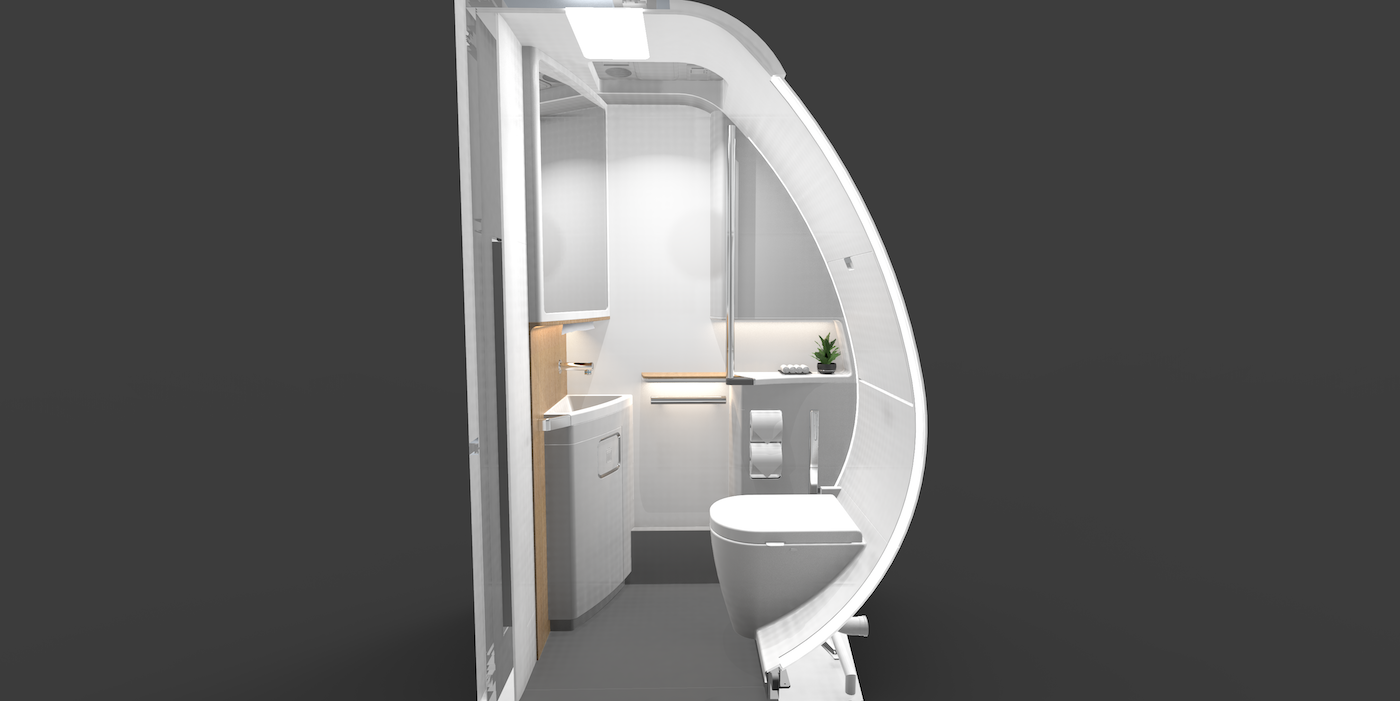
Carriers are not currently required by law to provide an accessible lavatory on single-aisle aircraft, which poses a problem as more long-range narrow-body aircraft enter service. During the research phase, ST Engineering and Acumen Design Associates heard that many disabled passengers dehydrate themselves before flying to avoid using the bathroom, or just avoid flying altogether.
Daniel Clucas, senior designer at Acumen Design Associates stated, “Many disabled passengers avoid flying because of the compromises they have to make, especially when using the on-board lavatory. During our research we heard first-hand how those that do fly will even avoid using the lavatory altogether if possible. As more single-aisle aircraft take to the skies, Access can ensure disabled travellers have the space, privacy and support features in place to never have to worry about that again.”
Cassandra Sexson, director of business development at ST Engineering added, “Our vision was to overhaul the on-board lavatory experience and create an inclusive interior that improved the flying experience for all passengers. Having worked with Acumen to identify the main accessibility issues with current lavatory designs, Access is able to offer airlines an innovative new product that tackles one of the biggest issues faced by disabled passengers when they fly.”


